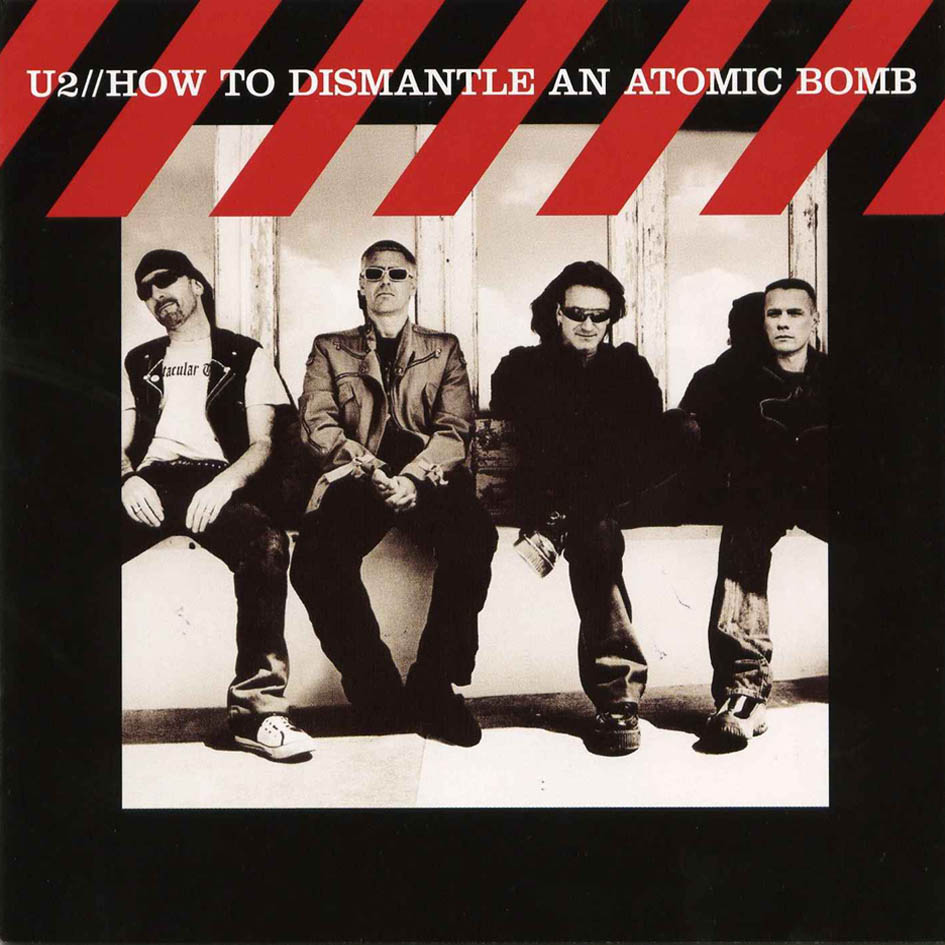
How To Dismantle an Atomic Bomb (2004)

1. Vertigo 2. Miracle Drug 3. Sometimes You Can't Make It On Your Own 4. Love and Peace or Else 5. City of Blinding Lights 6. All Because of You 7. A Man and a Woman 8. Crumbs From Your Table 9. One Step Closer 10.Origin of the Species 11.Yahweh
Of all the entries in U2’s vast and celebrated discography, How to Dismantle an Atomic Bomb may be the most curiously overlooked. It’s not that it lacked visibility—quite the opposite. Upon release, the band partnered with Apple for one of the most high-profile marketing pushes in music history, complete with special edition iPods, dancing silhouette commercials, and front-and-center placement for the lead single Vertigo. It swept the Grammys, sold in droves, and kicked off a massive world tour. And yet, the album often slips through the cracks when the conversation turns to the band’s definitive works.
The likely reason? It doesn’t shift the narrative. U2 had spent decades redefining themselves from record to record—post-punk prophets one moment, irony-drenched cyber-showmen the next. This album, by contrast, plays things relatively straight. There’s no new aesthetic, no radical change in sound, no dramatic thematic turn. It’s not the album where U2 “did” anything—except, perhaps, be U2.
But here’s the thing: when the songs are this good, reinvention is beside the point. How to Dismantle an Atomic Bomb may be conservative by the band’s standards, but it’s also immaculately crafted. The sound is punchy and confident, the melodies are immediate, and Bono—predictably hyperbolic—called it their “first true rock and roll album.” That’s a stretch, of course, but there’s a welcome sense of physicality to the music that hadn’t been heard in a while.
Vertigo is a case in point—a full-tilt, blistering opener that channels the ragged exuberance of I Will Follow without directly mimicking it. Likewise, All Because of You keeps the tempo high and the guitars front and center. These are tight, muscular rock songs—less grandiose than the band’s stadium epics, but just as effective in their own right.
The album’s subtler moments, however, offer even more resonance. Sometimes You Can’t Make It on Your Own is one of the band’s finest slow-burn ballads—raw, personal, and emotionally devastating by the time it reaches its crescendo. City of Blinding Lights, meanwhile, shimmers with widescreen optimism, its cascading intro echoing the emotional arc of Where the Streets Have No Name without leaning on it too heavily.
Elsewhere, there are intriguing nods to past styles without ever resorting to nostalgia. Love and Peace or Else recalls the thunder of Bullet the Blue Sky, but swaps the menace for a swaggering groove. Even Crumbs from Your Table and Original of the Species—lesser-known tracks—offer enough charm and ambition to reward repeated listens.
The only real stumble comes with A Man and a Woman, a heavily acoustic, somewhat undercooked interlude that never quite earns its place among the surrounding material. It’s not bad, just slightly pedestrian in a set that otherwise sparkles with intention.
For all its polish and pedigree, How to Dismantle an Atomic Bomb has never quite escaped the label of “safe” U2. And that’s a shame. Because while it may not break new ground, it does something perhaps more difficult: it delivers one of the band’s most consistent and emotionally satisfying records in years. A collection of top-tier songs, executed with precision and heart. Underrated? Absolutely. Unessential? Not even close. This is U2 doing what they do best—and doing it with such assurance that innovation, for once, felt unnecessary.